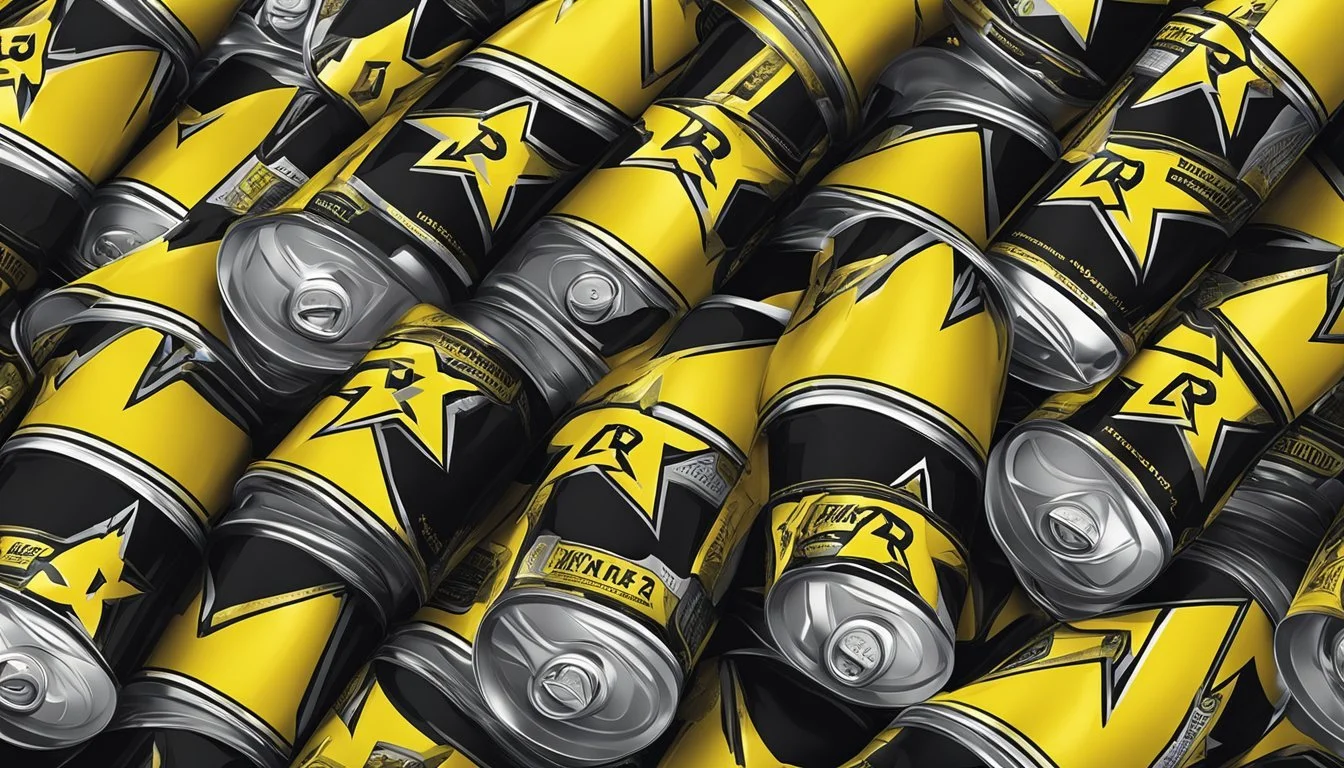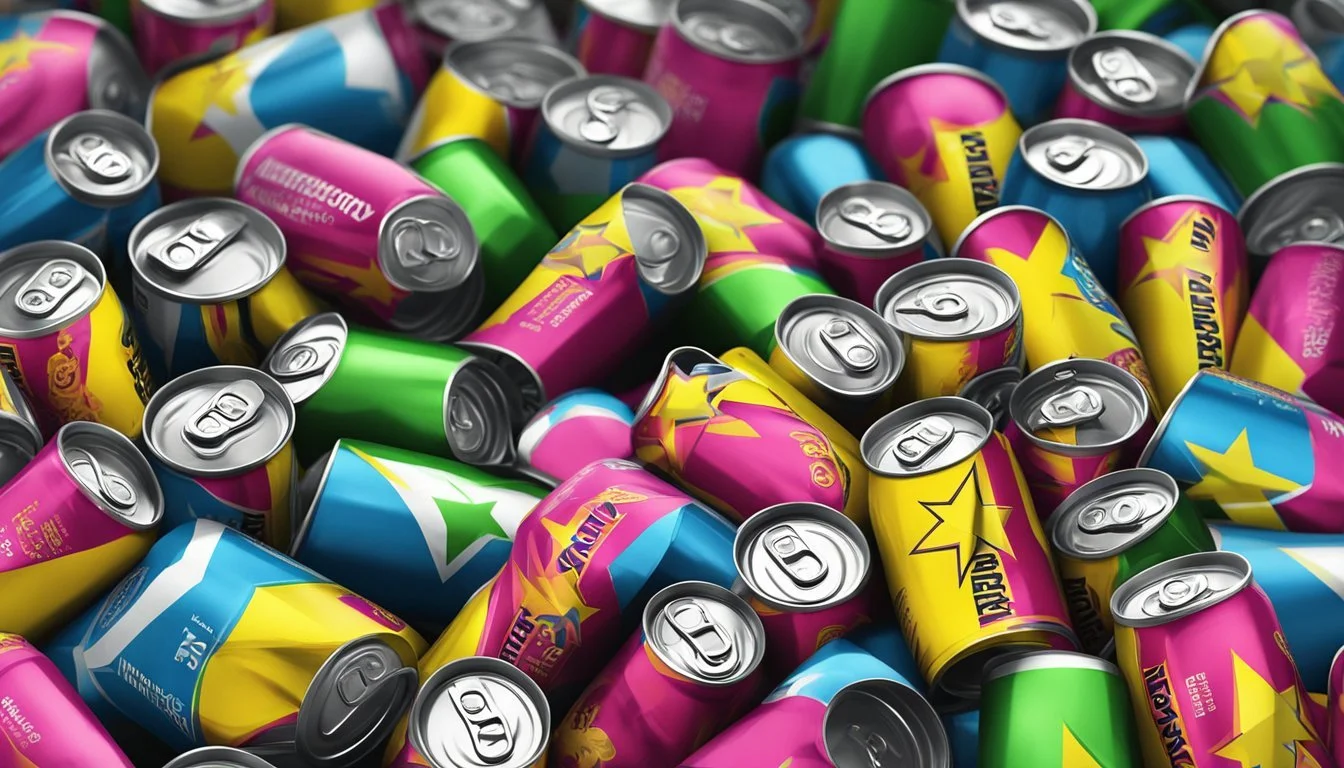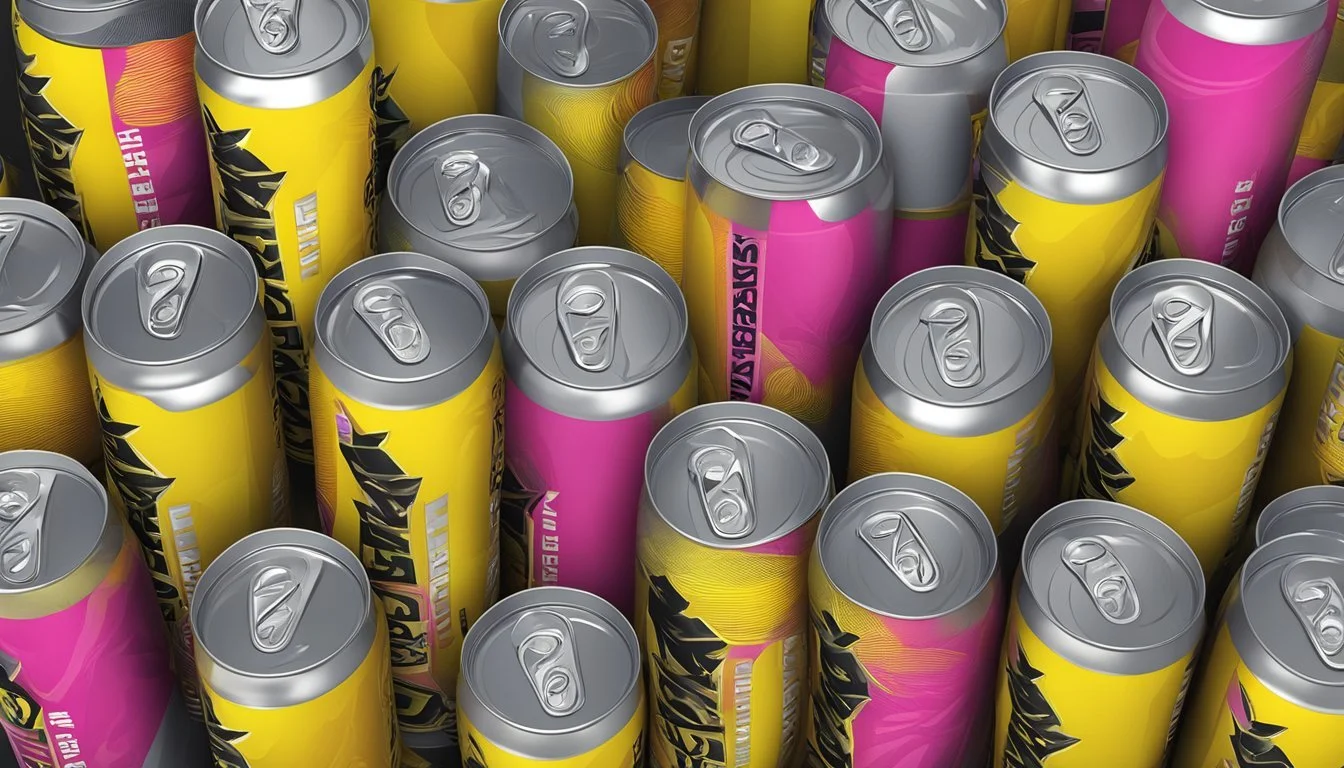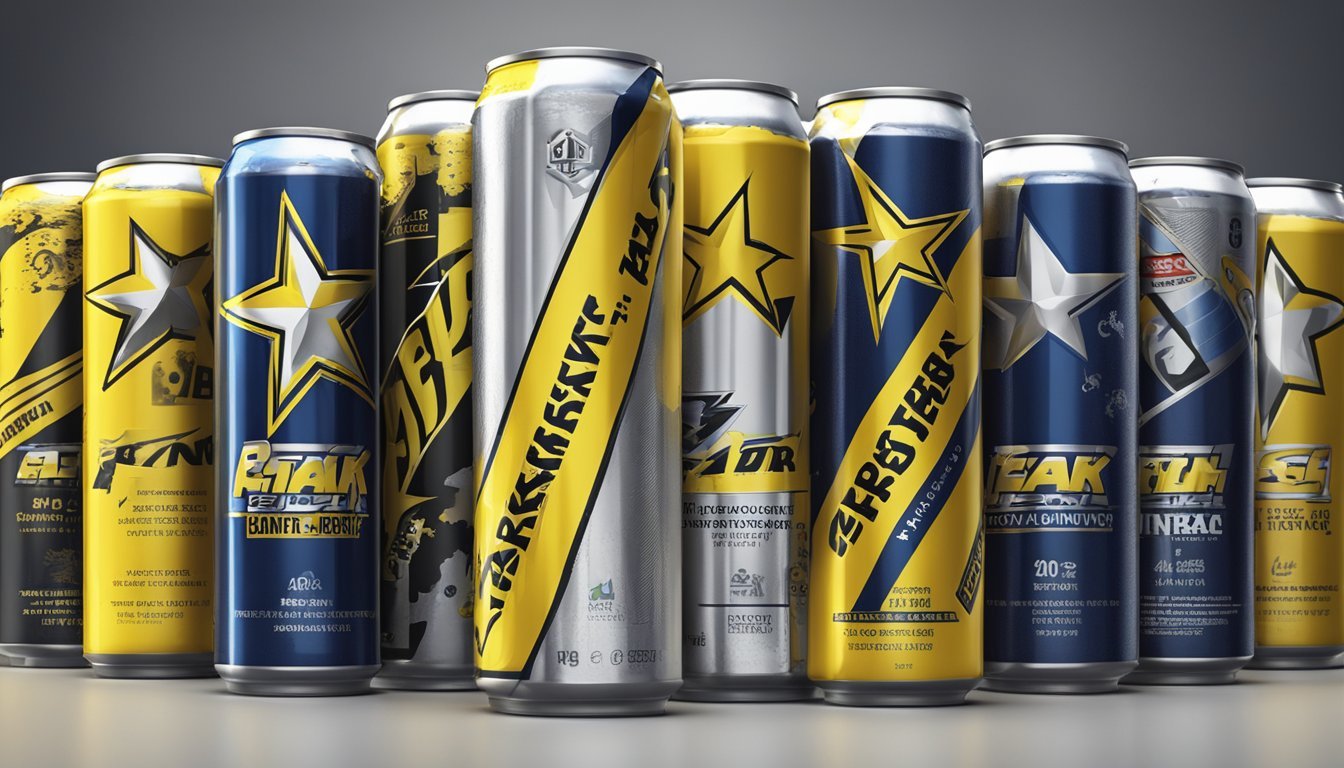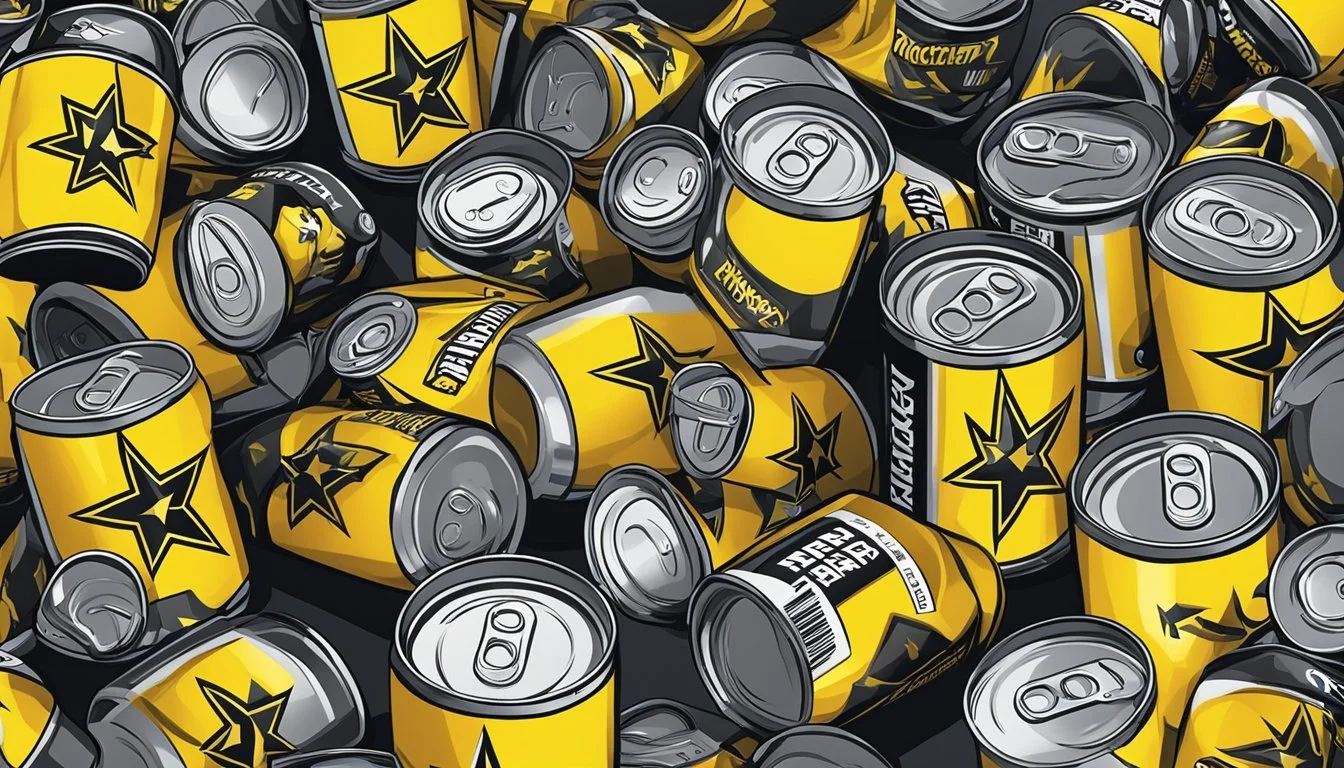How Many Cans of Rockstar Energy Drink Per Day is Too Much?
Understanding Safe Consumption Limits
Energy drinks have surged in popularity across the globe, with Rockstar Energy Drink being among the notable brands that promise a quick boost of energy and alertness. Each 16 fl. oz can of Rockstar contains 160mg of caffeine, which is a significant amount, though not uncommon in the world of caffeinated beverages. When considering how many cans are too much, it's important to be aware of caffeine's effects on the body and the recommended daily limits.
The consumption of Rockstar Energy Drinks, like all energy drinks, should be moderated based on caffeine content. The FDA recommends a daily maximum caffeine intake of 400mg for the average adult. This means that consuming more than two and a half cans of Rockstar could exceed the recommended limit, increasing the likelihood of adverse effects such as increased heart rate and blood pressure, insomnia, and nervousness.
Being mindful of the intake of energy drinks, individuals should consider not only the caffeine content but also the presence of other ingredients such as B vitamins and sugars, which can have their own effects on health. While a can of Rockstar Energy Drink may provide the desired energy boost, it's necessary to balance consumption with an awareness of the body's tolerance and a sensible approach to diet and health.
Understanding Energy Drinks
This section provides insight into the composition of energy drinks, focusing on the elements that contribute to their stimulating effects and potential health implications.
Ingredients of Energy Drinks
Energy drinks are composed of various components designed to boost energy and alertness. Key ingredients often include:
Caffeine: A central stimulant found in coffee and tea.
Sugar: Provides quick energy, usually in the form of sucrose or glucose.
Taurine: An amino acid that supports neurological development and regulates water and mineral salts in the blood.
Guarana: A plant extract with a high caffeine content.
Vitamins: Commonly B vitamins such as niacin (vitamin B3), riboflavin (vitamin B2), and vitamin B12, which aid in converting food into energy.
Ginseng root: An herbal extract claimed to have various health benefits.
Caffeine Content Analysis
A single 16 fl. oz (500ml) can of Rockstar Energy Drink typically contains 160mg of caffeine. An analysis shows this amount is substantial but below the FDA's maximum daily caffeine recommendation of 400mg. Comparison to other caffeinated beverages is as follows:
Coffee: Approximately 95mg per 8oz
Tea: Roughly 26mg per 8oz
Energy Drinks (Rockstar): 160mg per 16oz
Caloric and Sugar Content
The caloric and sugar content in energy drinks contributes to the overall energy boost. A typical can may include:
Calories: Up to 210 calories.
Added Sugar: Around 47 grams or the equivalent of 12 teaspoons, fulfilling an entire day's recommended intake.
Artificial Sweeteners and Additives
For calorie-conscious individuals, some energy drinks substitute sugar with artificial sweeteners like sucralose and acesulfame potassium. Common non-nutritive sweeteners and additives used are:
Sucralose: A sweetener that doesn't provide calories.
Acesulfame Potassium: Often combined with other sweeteners to enhance sweetness.
Erythritol: A sugar alcohol with fewer calories than sugar.
Other Additives: Artificial flavors, sodium citrate, and citric acid for flavor and preservation.
Health Implications of Energy Drinks
Energy drinks, including Rockstar, may pose several health risks due to their high caffeine and sugar content. The health implications of these drinks are wide-ranging and can affect various body systems.
Cardiovascular Effects
Energy drinks can have significant cardiovascular effects, notably on blood pressure and heart rate. Research has shown that the consumption of Rockstar can lead to a 6% increase in systolic blood pressure and a 7% rise in diastolic blood pressure. Prolonged use, especially in excessive quantities, can increase the risk of heart disease and potentially lead to cardiovascular events.
Metabolic and Endocrine Impact
The high levels of sugar and caffeine in energy drinks can lead to metabolic and endocrine problems. Consuming energy drinks may cause:
Elevations in blood glucose levels, leading to insulin resistance
Potential risk of type 2 diabetes
Weight gain due to high caloric content, contributing to obesity
Neurological and Psychological Consequences
Energy drinks affect the central nervous system and can cause a range of neurological and psychological side effects, such as:
Anxiety
Insomnia
Headaches
Dizziness
Nausea
Overuse may lead to more serious conditions like depression or severe anxiety disorders.
Particular Risks for Specific Groups
Certain groups are at higher risk when consuming energy drinks. The American Academy of Pediatrics advises against energy drink consumption by children due to the risk of heart problems, high blood pressure, and the potential for other adverse effects. Pregnant women and athletes also need to be cautious, as the high caffeine content can lead to dehydration, restlessness, and increased heart rate, which are not conducive to health during pregnancy or athletic performance.
Safe Consumption Guidelines
When it comes to consuming energy drinks like Rockstar, it is crucial to adhere to recommended intake limits to avoid health risks associated with excess caffeine consumption.
Recommended Intake Limits
A standard 16 fl. oz can of Rockstar Energy Drink contains 160mg of caffeine. The FDA recommends that the maximum daily caffeine intake for a healthy adult should not exceed 400mg. Going by these guidelines, an individual should limit themselves to no more than two and a half cans of Rockstar Energy Drink per day. The American Heart Association advocates for moderation, warning that excessive caffeine intake can lead to a rise in blood pressure and may increase the risk of a caffeine overdose, which can result in palpitations, dizziness, and other health issues.
Maximum caffeine per day: 400mg
Caffeine per Rockstar can: 160mg
Safe daily limit: About 2.5 cans
Alternative Healthy Beverage Options
While Rockstar Energy Drinks provide a quick boost of energy, they are not the only option for those looking to stay hydrated and energized. There are healthier alternatives that come with their own set of benefits:
Water: Essential for life, water is the healthiest beverage option, causing no adverse health effects and effectively hydrating the body.
Tea: Contains caffeine for an energy boost, but generally at lower levels than energy drinks, and offers a range of antioxidants.
Coffee: Similar to tea, coffee provides a caffeine boost and contains antioxidants but should also be consumed in moderation.
Water: Hydration without health risks
Tea and Coffee: Lower caffeine content, beneficial antioxidants
Choosing alternatives like tea, coffee, or even just water can provide the necessary hydration and a safer energy lift compared to the frequent consumption of energy drinks.
Regulatory Standards and Recommendations
The Food and Drug Administration (FDA) recommends that a healthy adult should not consume more than 400 milligrams of caffeine daily. Given that a Rockstar Energy drink contains 160 milligrams of caffeine per 16-ounce can, one should therefore limit intake to no more than 2 to 2.5 cans to stay under the advised threshold.
The American Heart Association (AHA) suggests more stringent guidelines on sugar consumption, which play a crucial role in determining the safe quantity of energy drinks one can consume. For women, the AHA recommends no more than 25 grams of sugar per day and, for men, the limit is set at 36 grams. Since a single can of Rockstar Energy has approximately 24 grams of sugar, it’s advisable to cap consumption at one can per day to meet these guidelines.
The American Academy of Pediatrics advises against the use of caffeine by children, asserting that it should not be a part of their regular diet. For adolescents who might consume energy drinks, guidelines are vaguer, but caution is urged due to the potential for negative health impacts.
Adults and especially young consumers should use this information to make informed decisions, acknowledging both the caffeine and sugar content in Rockstar Energy drinks before consuming them. It is important to consider individual health conditions and dietary restrictions when deciding how much is too much.
Consumer Information
When choosing energy drinks like Rockstar, consumers must be vigilant about the ingredients and marketing claims, as these factors directly impact their health.
Reading Nutrition Labels on Energy Drinks
Consumers should scrutinize the nutrition facts on energy drink cans to make informed choices. A standard 16 fl. oz can of Rockstar energy drink contains 160mg of caffeine. To put this in perspective:
FDA's recommended maximum daily caffeine intake: 400mg
Rockstar maximum daily recommendation: 2 cans
Excessive caffeine intake may lead to adverse health effects, so staying within these limits is crucial. Additionally, consumers should watch for the sugar content. A single can may contain a significant portion of the recommended daily intake, impacting overall dietary health.
Key Nutrients to Monitor:
Caffeine
Sugar
B Vitamins
Tip: Remember to account for other sources of caffeine or added sugars in one's diet, as these will contribute to the daily totals.
Understanding Marketing Claims
Energy drinks often come with bold marketing claims promising an instant energy boost or improved performance. While some ingredients in these beverages, such as caffeine and B vitamins, are known stimulants, the benefits can vary widely among individuals.
Consumers should approach these claims with a critical eye:
"Energy Boost": Energy drinks do stimulate the central nervous system, which can lead to a perceived increase in energy levels.
"All-day Energy": No energy drink can substitute for the natural, sustained energy one gets from a balanced diet and adequate sleep.
Flavors and other non-active ingredients often do not contribute to the energy-boosting effect of the drink but may make the product more appealing. It is important to differentiate between actual benefits and marketing tactics designed to enhance the appeal of energy drinks.
Comparisons With Other Caffeinated Products
When considering the daily consumption of Rockstar energy drinks, it is crucial to compare its caffeine content with other common caffeinated products to understand its potency.
Energy Drinks vs. Coffee and Tea
Coffee: A standard 8 oz. cup contains 80-100 mg of caffeine.
Tea: Depending on the type, an 8 oz. cup can range from 15-70 mg of caffeine.
Rockstar energy drinks typically offer 160 mg of caffeine per 16 oz. can, which presents a higher concentration of caffeine compared to a similar volume of coffee or tea.
Comparison with Other Energy Drink Brands
Various energy drink brands have differing levels of caffeine:
Red Bull: Offers a lower caffeine content with 80 mg per 8.4 oz.
Monster and Rockstar: Generally provide around 160 mg of caffeine per 16 oz. can.
Reign and Bang: These brands are on the higher end, with up to 300 mg of caffeine per can.
The choice between these brands and flavors depends on the individual's desired caffeine intake and tolerance levels. It is important to note that one should regulate their intake according to safe consumption guidelines.
Alternatives to Energy Drinks
In the pursuit of maintaining energy levels throughout the day, individuals often seek healthier alternatives to energy drinks. These substitutes not only provide an energy boost but also offer various health benefits without the adverse effects associated with high caffeine and sugar content.
Natural Energy Boosting Foods
One's diet plays a crucial role in energy sustenance. Fruits like bananas, apples, and oranges are excellent for a quick energy boost since they contain natural sugars that provide immediate fuel and fiber for sustained energy. Nuts, including almonds and walnuts, are rich in healthy fats, proteins, and magnesium, supporting energy levels throughout the day. Including these foods in one's diet can improve overall energy without the need for energy drinks.
Fruits: Bananas, Apples, Oranges
Nuts: Almonds, Walnuts
Lifestyle Changes for Natural Energy
Beyond diet, incorporating certain lifestyle changes can have a significant impact on one's energy levels. Adequate hydration is vital; drinking enough water is essential for optimal body function. Regular exercise boosts cardiovascular health and increases stamina. Prioritizing sufficient sleep and effective stress management techniques are also key to maintaining high energy levels naturally. These habits not only replace the need for energy drinks but contribute to a healthier lifestyle overall.
Hydrate: 8 glasses of water a day
Exercise: At least 150 minutes a week
Sleep: 7-9 hours per night
Stress Management: Yoga, meditation, or deep-breathing exercises
Frequently Asked Questions
Understanding the health implications and performance effects of Rockstar energy drinks can help guide safe consumption practices.
Health Concerns and Myths
Energy drinks like Rockstar are often surrounded by myths regarding their safety. A single 16 fl. oz can of Rockstar Energy contains 160 mg of caffeine, which is a moderate amount compared to some other energy drinks. The FDA recommends that adults should not exceed 400 mg of caffeine per day. Consuming more can lead to health risks such as increased blood pressure, heart palpitations, and other cardiovascular concerns. It's advised that children, pregnant or breastfeeding women, and individuals sensitive to caffeine avoid consuming high caffeine energy drinks.
Caffeine Content: 1 can = 160 mg
FDA Recommended Limit: 400 mg/day
Impact on Athletic Performance
Athletes often use energy drinks like Rockstar for an energy boost pre or post workout. While the caffeine provided in these drinks can temporarily improve focus and performance, it is not a substitute for proper hydration and nutrition. Excessive consumption can lead to dehydration, which is detrimental to athletic performance. It's essential for athletes to balance their energy needs with the risks and to ensure they consume energy drinks in moderation.
Benefits: Improved focus and temporary performance boost
Risks: Dehydration and performance decline with excessive use
Future Directions in Energy Drink Research
Research on energy drinks has been a growing field, focusing on their health implications, safety, and consumer behavior. As the beverage industry evolves, so do the patterns of energy drink consumption and the associated health concerns. Future research should pivot towards a holistic examination, embracing the scientific, regulatory, and public health perspectives.
Key Areas for Exploration:
Longitudinal Health Studies: There is a need to conduct long-term studies to understand the cumulative health effects of energy drinks, especially concerning cardiovascular and metabolic health.
Impact on Vulnerable Populations: Adolescents, pregnant women, and individuals with pre-existing health conditions are particularly vulnerable. Studies tailored to these groups are vital to formulate tailored advice and safety regulations.
Behavioral Insights: Researchers should assess the psychological drivers behind energy drink consumption to effectively address potential misuse.
Ingredient Synergy and Safety: With the increasing complexity of energy drink formulas, understanding the synergistic effects of ingredients on the body remains crucial.
Proposed Methodological Enhancements:
Use of mixed methods to triangulate data from qualitative insights and quantitative analyses.
Greater emphasis on collaboration between academic institutions, healthcare organizations, and the beverage industry to address research gaps.
Ethical Considerations:
Research must adhere to strict ethical guidelines to ensure the unbiased reporting of health impacts and the protection of study participants.
The shifting landscape of consumer preferences, such as the rise in low-calorie energy drinks, suggests that research must adapt to the changing marketplace. This adaptation will enable stakeholders to stay informed and ensure that energy drink consumption, particularly brands like Rockstar, can be managed safely and with informed advisement.


